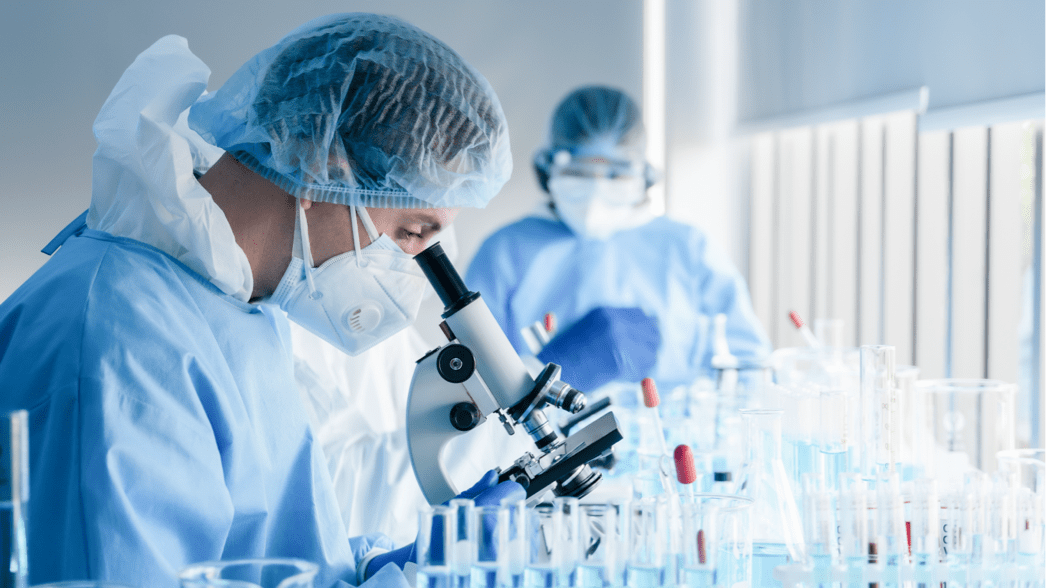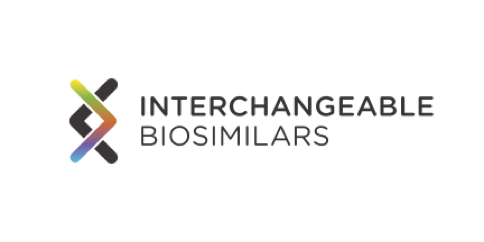Biologics are the
fastest-growing
therapeutic category
in the US.1
Find out what INTERCHANGEABILITY can mean for you.

Biologics are complex, large-molecule medicines cultured inside living cells2
Biologics have transformed the lives of millions of people with effective, highly targeted treatments for3:

Cancers (lung, colorectal, and others)

Rheumatoid
arthritis

Plaque
Psoriasis

Crohn’s
disease

And
many more
These complex medicines are expensive to produce; therefore, the high cost may keep them out of reach for some patients3
What is a biologic?
Biologics are medicines that come from living organisms—which can include micro-organisms, plant cells, or animal cells such as yeast and bacteria—and are often more complex than small-molecule drugs.2,4
They include vaccines, monoclonal antibodies, blood components, allergenics, gene therapy, tissues, and proteins, and are used to treat diseases and conditions such as cancer, kidney diseases, and autoimmune diseases.2,5
There is a need for more affordable options to biologics
The cost of biologics imposes strain on the healthcare system.6
These strains may result in decreased access and compliance among patients who cannot afford these treatments.
Biologics may create high patient out-of-pocket costs, reduce treatment compliance, and limit treatment options.
Frequently Asked Questions
While a New Drug Application is used for drugs subject to the drug approval provisions of the FDC Act, a biologics license application (BLA) is a requirement for biological products subject to licensure under the PHS Act. The approval from the FDA to market a biologic is granted by issuance of a biologics license.7
Traditional drug products typically consist of pure chemical substances that tend to be easily analyzed after manufacture. Due to the fact that in many cases there is limited ability to identify the clinically active component(s) of a complex biological product, they are often defined by their manufacturing processes. If there are changes in the manufacturing process, equipment, or facilities, this could result in changes in the biological product itself and may even require additional clinical studies to demonstrate the product's safety, identity, purity, and potency. Since there is a significant difference in how biologics are made, the agency monitors production from the early stages to ensure the final product turns out as expected.7
References:
-
1. US Food & Drug Administration website. Biosimilar and interchangeable products. https://www.fda.gov/Drugs/DevelopmentApprovalProcess/HowDrugsareDevelopedandApproved/ApprovalApplications/TherapeuticBiologicApplications/Biosimilars/ucm580419.htm. Accessed November 1, 2022.
-
2. US Food & Drug Administration website. Biological product definitions. https://www.fda.gov/files/drugs/published/Biological-Product-Definitions.pdf. Accessed November 1, 2022.
-
3. Ryan AM. Frontiers in nonclinical drug development: biosimilars. Vet Pathol. 2015;52(2):419-426.
-
4. Lucio SD, Stevenson JG, Hoffman JM. Biosimilars: primer for the health-system pharmacist. Am J Health Syst Pharm. 2013;70(22):2004-2017.
-
5. US Food & Drug Administration website. Biosimilars: are they the same quality? https://www.fda.gov/media/161628/download. Accessed November 1, 2022.
-
6. Mulcahy AW, Predmore Z, Mattke S. The cost savings potential of biosimilar drugs in the United States. RAND Corporation. https://www.rand.org/content/dam/rand/pubs/perspectives/PE100/PE127/RAND_PE127.pdf. Accessed November 1, 2022.
-
7. US Food & Drug Administration website. Frequently asked questions about therapeutic biological products. https://www.fda.gov/drugs/therapeutic-biologics-applications-bla/frequently-asked-questions-about-therapeutic-biological-products. Accessed November 22, 2022.

